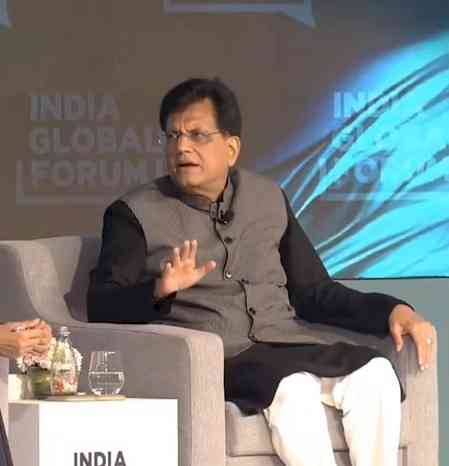Budget 2023-24: Here’s what the Startups from different segments wishing for
Union Budget 2023-24 Expectation: Companies anticipate that regulatory requirements will be simplified to make doing business easier.

The announcement of India's Union Budget is quickly approaching. The entire country is eagerly awaiting the presentation of the Union Budget 2023-24 by Finance Minister Nirmala Sitharaman on February 1st. The government has been working to encourage the growth of new businesses in the country. So it's no surprise that the startup sector has high hopes for this year's budget. Every year, the budget offers some relief and benefits to various sectors. The following are the expectations of various industry players for the upcoming budget.
Gaurav Rathore, Co-founder - EVeez, a pioneer in Electric Mobility as a Service (eMaaS) shares his expectations for the Electric Vehicle sector, "With Fame II subsidy drawing to a close, a key expectation from Budget 2023-24 is a newer and broader FAME III to be introduced which has at least five times the targets of FAME II. In addition, it must also include electric vehicles (EVs) which are currently sold without a battery and which rely on battery swapping networks so that EV adoption (especially by commercial fleet operators and logistics companies) through newer operating models like electric mobility as a service (eMaaS) can be accelerated.”
“Secondly, it is imperative that financing of EVs be brought under the ambit of Priority Sector Lending (PSL); primarily as upcoming EV businesses encompass two sectors under PSL i.e. renewable energy and MSMEs. Public and private sector banks have generally been slow to financing EVs for business and commercial use; and bringing this under PSL will accelerate EV adoption to a critical mass of the population." adds Gaurav.
Sharing his expectations for the MSME sector, Arjun N, Founder & CEO - SolutionBuggy, India’s largest manufacturing consulting platform, says, "Budget 2023 will arrive at an uncertain time of geo-political conflict, high inflation and fear of global recession. Expectation from the budget is to do a balancing act between global volatility (survival) and focus on growth. MSMEs are the backbone of the Indian economy. The existing production-linked incentive (PLI) schemes are limited to corporates and big players concentrated in specific sectors. Extending the scheme to manufacturing MSMEs can provide a boost to Atmanirbhar Bharat (especially focus on Import substitution) and create jobs. Revamping of the Credit Guarantee Scheme for MSMEs can provide an easier line of credit which is one of their essential requirements to maintain liquidity for the sector. Lowering compliance costs (regulations/ licences/ compliances) especially for Micro enterprises can also be a small but positive step towards supporting MSMEs"
Urvisha Panchani, Director - Fabcurate, an online fabrics store, expects the textile industry to flourish and says, “If the government relaxes tax laws and opens up more opportunities for foreign investment, the budget for 2023–24 might boost the textile industry. By 2025–2026, the Indian textile and apparel market is projected to increase at a 10% CAGR, totaling US$184.44 billion. Around 4.5 crore people work in India's textile industry, and the government should take into account the enormous number of people involved in the industry and offer new programs with lower tax burdens. Rules governing the export and return of goods should be made simpler to enable SMEs to export their goods smoothly. Additionally, the documentation process needs to be made more compatible. The upcoming year is very crucial for the retail industry and there are many criteria that are going to decide the future of the business.”
Talking about the expectations of the advertising/tech companies, Harsh S Kedia, Co-founder - Auburn Digital Solutions, a full-service digital agency, shares, “The benefits of SEIS export incentives to advertising/tech companies based in India are multifold. While the proposed incentives will push the country's service-based exports to global clients, these will also help in intensifying digital penetration among the masses in the country. These benefits will boost India's digital economy and lead to the creation of a Digital Advertising Ecosystem with all-encompassing benefits for all participating stakeholders. Experts also hope that the creation of the Digital Advertising Ecosystem will prove instrumental in the development of better policies for e-commerce, fintech, agri-tech, and other such tech-based industries. This, in turn, will push the envelope on Digital Adoption and support for digital advertising companies across the spectrum. Further, the segment of the creator economy will receive its share of benefits.”
Mayank Verma, Co-Founder - Leadup Universe, an Executive Education Acceleration Firm, talks about the expectations of the edtech sector, "Imperative for the Union budget 2023 to look at investment in the learning tech infrastructure ensuring multimodal learning to boost quality education and training. The use of digital technology in the learning process will make quality resources accessible to students till the last mile, irrespective of their demographic and geographic locations. The reduction of GST on learning tech solutions can help make it affordable across the country, further boosting smart classroom deployment & usage. In sum, the budget allocation should look at subsidising the use of tools and technologies to help digital penetration for advanced learning solutions in 2023."


 City Air News
City Air News 








